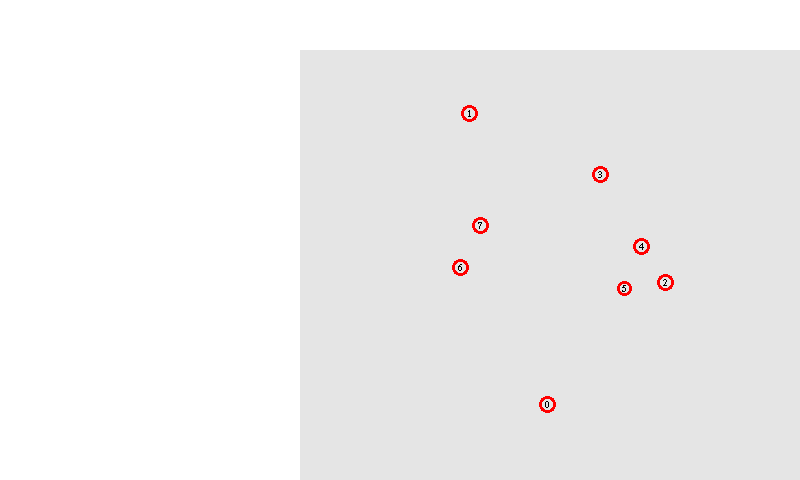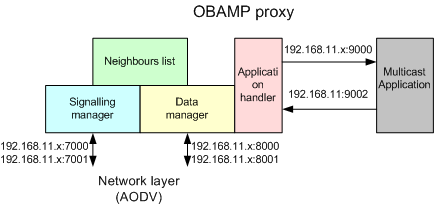OBAMP
Overlay Borůvka Based Ad-hoc Multicast Protocol
OBAMP is an overlay protocol: it runs only in the end-systems belonging to the multicast group. User data are distributed over a shared distribution tree formed by a set of non-cyclic UDP tunnels. OBAMP derives the distribution tree by approximating the Boruvka algorithm; the Boruvka algorithm is a classical tool (1926) to find the minimum spanning tree; thus, the distribution tree of OBAMP is an approximation of the minimum spanning tree of the connectivity topology at hand. OBAMP shows three distinctive advantages: i) its distribution tree closely resembles the minimum spanning tree; ii) it exploits broadcast communications (with favourable consequences on its efficiency); iii) its design takes into account not only overlay signalling but also network-layer signalling; thus, the protocol succeeds in limiting the overall signalling load, network+overlay. As a consequence, OBAMP has a low-latency and a high delivery ratio, even when the group size increases.
The following animation represents the OBAMP tree link (red line) and mesh link (red and black lines) during a ns2 simulation.

We have implemented OBAMP through JAVA language verify its functionalities in an emulated ad-hoc network environment. OBAMP is designed as an independent module, which on behalf of the multicast applications is seen as a proxy (OBAMP proxy). The multicast application sends and receives data through local sockets, which are bound with the OBAMP proxy; on its turn, OBAMP proxy deals with the data distribution on the multicast tree.
In addition, we have also implemented an OBAMP version that operates in a cross layer fashion with a proactive routing protocol (e.g. OLSR); we name this cross layer version as OBAMPxP. We note that OBAMPxP does not requires network layer flooding support as OBAMP does. Consequently, it can be simply tested installing OLSR on each MANET node.

SOFTWARE AND DOCUMENTATION
- JAVA Implementation:
- NS2 Simulator:
- Documentation:
Team Project
Andrea Detti: Electronic Dept.of University of "Tor Vergata", Via del Politecnico 1, Rome Italy andrea.detti@uniroma2.it
Claudio Loreti: RadioLabs, Via A. Cavaglieri 26, Rome Italy claudio.loreti@radiolabs.it
Remo Pomposini: RadioLabs, Via A. Cavaglieri 26, Rome Italy remo.pomposini@radiolabs.it
Roberto Zanetti: RadioLabs, Via A. Cavaglieri 26, Rome Italy
Funded by
